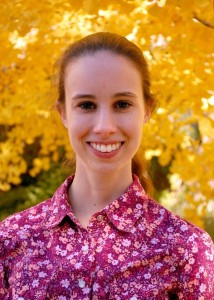 Name: Helen Joyner
Name: Helen Joyner
Job title: Assistant Professor
Company: University of Idaho (School of Food Science)
IFT Divisions to which you belong: Dairy Foods Division; Education, Extension, & Outreach Division; Food Engineering Division; Sensory and Consumer Sciences Division
Highest Level of Education/Degree: Ph.D.
What is your favorite quote? It changes! Right now, it’s from an unknown source:
“I want to inspire people. I want someone to look at me and say, ‘Because of you, I didn’t give up.’”
What does your schedule look like today? That changes too, depending on the day. I don’t have a typical day per se, but I do have activities that occur regularly. My academic appointment is 50% teaching and 50% research, so I’m usually doing something related to one or the other.
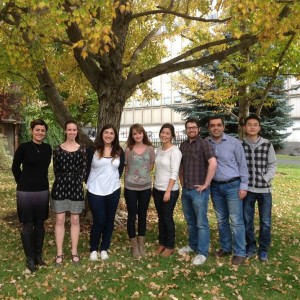 My day always starts with at least an hour of writing. I always have something to work on, whether it’s a grant proposal, a publication that will be submitted for peer review, or a publication that has been reviewed and needs editing before publication. I’m a morning person, so my best time for writing is in the morning. If I have a class that day, I check over my materials for class before I head out to teach. If I don’t have a class, I prep materials for the next class. I also work on course preparation for the courses I’ll be teaching during the next semester. There’s always something that needs tweaking or updating. In addition, I may meet with one or more of my students to find out how their research or academic work is going, discuss their plans for future experiments, and answer any questions. The last thing I do each day is check on my distance education course. I respond to discussion posts, grade assignments, and make sure the course website is up to date.
My day always starts with at least an hour of writing. I always have something to work on, whether it’s a grant proposal, a publication that will be submitted for peer review, or a publication that has been reviewed and needs editing before publication. I’m a morning person, so my best time for writing is in the morning. If I have a class that day, I check over my materials for class before I head out to teach. If I don’t have a class, I prep materials for the next class. I also work on course preparation for the courses I’ll be teaching during the next semester. There’s always something that needs tweaking or updating. In addition, I may meet with one or more of my students to find out how their research or academic work is going, discuss their plans for future experiments, and answer any questions. The last thing I do each day is check on my distance education course. I respond to discussion posts, grade assignments, and make sure the course website is up to date.
How did you go about finding your current job? University job openings are often forwarded to interested people in food science departments. There are also job boards online dedicated to academic positions. I found the announcement for the opening for my current position from both.
My graduate and postdoctoral work helped hone the skills I needed for the position. Faculty need not only research skills, but teaching and grant-writing skills. I was able to develop all three of these skills during my graduate work and postdoctoral research. Postdoctoral positions are great for putting the final polish on your skills before you take an academic position. My experience and skills fit very well with the position open at the University of Idaho, and I felt that the position was a great fit for what I wanted to do, so I was offered the job and accepted the position. It’s been a great experience so far.
If you weren’t a Food Scientist, what would you be doing? I’ve always loved food, so this is a tough question! I have an undergraduate in chemical engineering, and I love engineering, so I’d probably be an engineer working on scaling foods from bench to industry production.
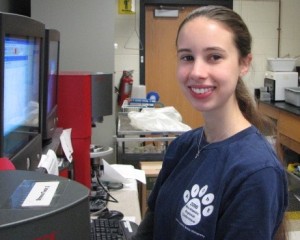 Who do you think is the most influential person in your field and why? As many others have said, Alton Brown. He’s done so much to merge science and food, and he’s done it in an interesting, engaging format that is appealing to anyone with an interest in food. Many students say that their interest in food science was started by watching the show Good Eats. Alton Brown shows us that it’s possible to teach people without taking the fun and exploration out of learning.
Who do you think is the most influential person in your field and why? As many others have said, Alton Brown. He’s done so much to merge science and food, and he’s done it in an interesting, engaging format that is appealing to anyone with an interest in food. Many students say that their interest in food science was started by watching the show Good Eats. Alton Brown shows us that it’s possible to teach people without taking the fun and exploration out of learning.
When are you most inspired? I’m most inspired when I’m talking with colleagues who are interested in the same things that I am. We start talking about research and ideas just roll out one after the other. A positive environment is great for creativity!
Why should I join the Education, Extension and Outreach Division or any other IFT Division?
A major challenge we face as food scientists is that most people are misinformed, underinformed, or not informed at all about food science and what food scientists do. For example, the Education, Extension & Outreach Division is dedicated to finding innovative and effective ways to educate people about food science and how it can be used to solve different problems involving the global food supply. From training the next generation of food scientists to teaching the public what all those words on an ingredient label really mean, our goal is to share knowledge and spark an interest in food science. Being more involved in this, or any other, division will provide you with many opportunities to learn more about different aspects of food science, get connected with people who have similar interests, and share your food science story.
The most valuable thing I, as a student, can do to further my research/career as soon as I finish reading this interview is: Figure out what fuels your inner drive. What about food science makes you excited to get up in the morning and go to class or work? If you can find a career path where that interest is central and you love what you do at work, you’re going to have a very enjoyable and rewarding career. Employers are always looking for people with this drive; it really increases your marketability. It’s definitely something I look for in potential graduate students.
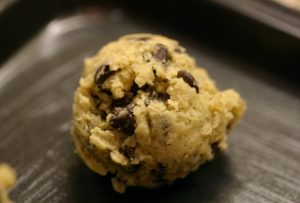
What is your favorite food? Chocolate chip cookie dough. I’ve always loved it, potential Salmonella in the eggs nonwithstanding.
or reach out to her at hjoyner@uidaho.edu

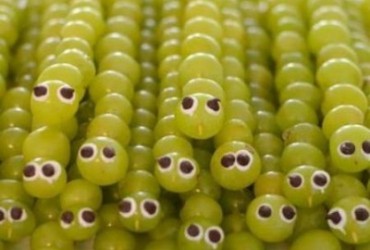
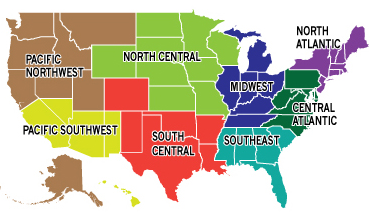



2 Comments